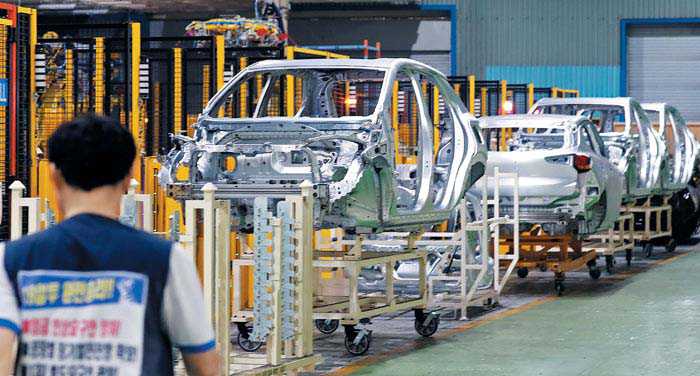GM Korea Workers Down Tools Despite W8 Trillion Bailout
11 September, 2019

Unionized workers at GM Korea have downed tools despite a massive bailout only a year ago that secured most of their jobs. It is their first full strike since GM Korea rose in 2002 from the ashes of the Daewoo Group's corporate implosion.
GM Korea was resuscitated a year ago with an W8 trillion capital infusion from U.S. headquarters and state-run Korea Development Bank, but sales and productivity have not improved (US$1=W1,194).
Now the union is demanding higher bonus payments than at vastly more successful Hyundai. Last year, GM Korea closed an assembly plant in Gunsan and laid off around 3,000 workers, suffering an operating loss of around W600 billion.
Cumulative losses over the last five years have totaled a staggering W4.4 trillion. Although GM Korea went into emergency mode this year to turn things around, sales in the first half fell another 6.3 percent on-year to 230,000 cars and are getting steadily worse.
Once rolling out 600,000 cars a year, GM has now reduced production to under 500,000. Two new models GM headquarters has decided to let GM Korea produce will not start rolling out of the assembly lines until 2020 and 2023. The Korean unit's goal this year is simply to tighten its belt and break even.
A GM Korea staffer said, "A clause in the labor agreement last year stipulates that any future wage hike must be preceded by securing profitability. The company has lived up to its investment promise, so unionized workers also need to hold up their end of the deal."
But unionized workers plan to down tools until the Chuseok holiday starts Thursday, and extend the strike indefinitely if management does not change its mind.
The strike is expected to disrupt production of some 10,000 cars and cause a sales loss of W200 billion even if it is not extended. Management insists that there will be no wage increase this year. The workers are risking their own necks since a prolonged strike increases the chances of GM headquarters simply transferring production to another global subsidiary.
Only a few weeks ago, Julian Blissett, the head of GM's international operations, visited Korea and warned that lost production at GM Korea could lead to orders being transferred to other plants, while warning that GM Korea would end up losing from a strike.
GM headquarters has promised to keep making cars in Korea for the next 10 years, but no promises were made about keeping staff on.
Source:
TAG(s):
